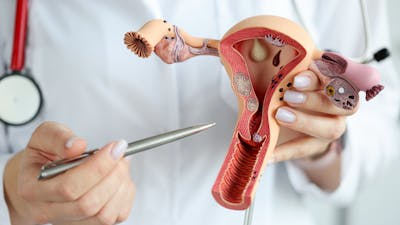Infertility is a global health issue affecting 186 million people worldwide. It can be linked to microbiome interactions in the cervix, especially women with bacterial vaginosis (BV), a condition affecting 30% of women of reproductive age.
Our microfluidic Cervix Chip model provides the first evidence that BV-related infections can impair sperm function due to an imbalanced microbiome in the female reproductive tract. This represents a new avenue to pursue treatments for BV-associated infertility, and highlights the Cervix Chip’s power as a new research tool for studying reproductive health.
